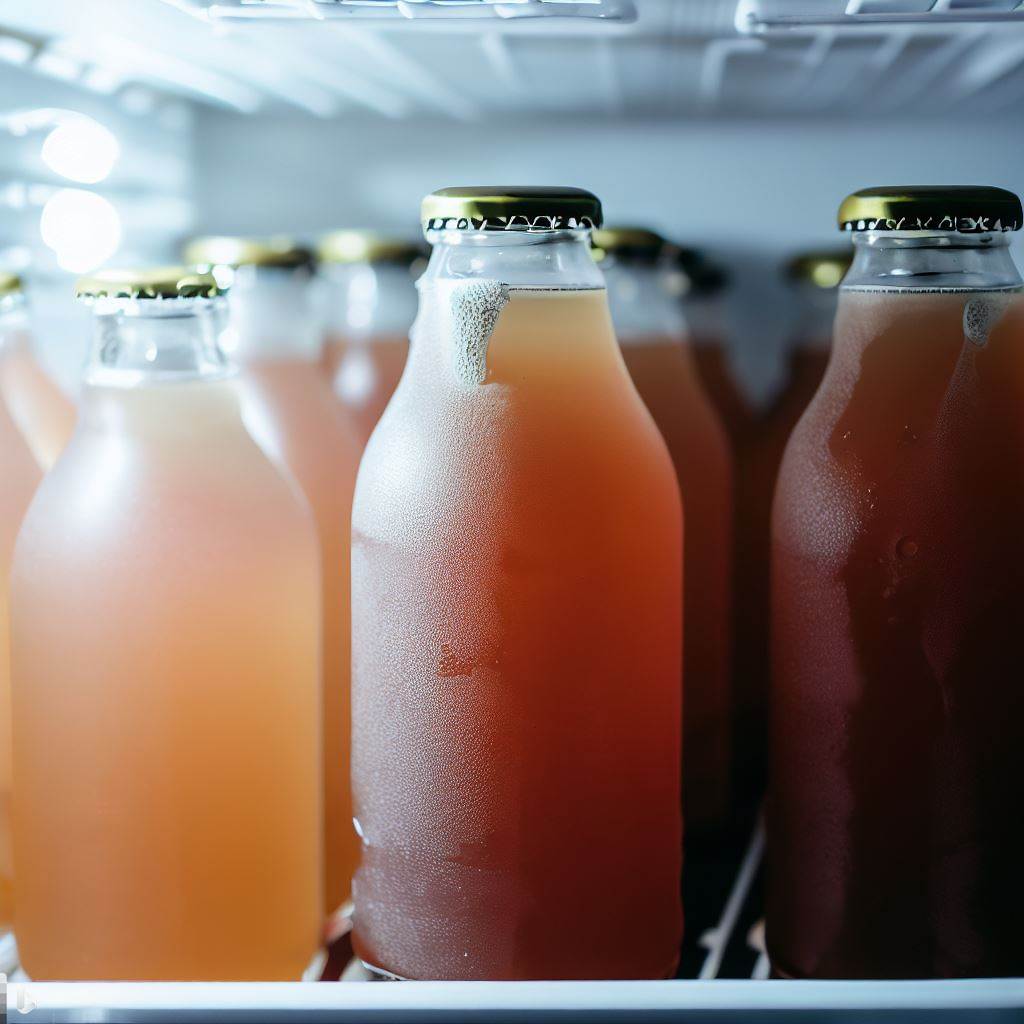The Importance of Refrigerating Kombucha: A Must-Know for Kombucha Lovers
As a fervent kombucha enthusiast, I’ve often marveled at the fermented delight that is kombucha. This probiotic-rich beverage, with its unique blend of sweet and tart flavors, has taken the health world by storm. But there’s one crucial aspect of kombucha care that often gets overlooked: refrigeration. Why is it so important to refrigerate your kombucha, and what happens if you don’t? Let’s dive into the details.
Now, onto the main topic: refrigeration. Check out the video that details why you should put booch in the fridge! Why is it so crucial to keep your kombucha chilled? The answer lies in the very heart of what makes kombucha, well, kombucha: fermentation.
Fermentation is a natural process where the SCOBY consumes the sugar in the tea, producing alcohol, carbon dioxide (which gives kombucha its signature fizz), and various organic acids. This process is temperature-dependent. At room temperature, the SCOBY is active and fermentation continues. However, when you refrigerate kombucha, the cold temperature slows down the fermentation process significantly.
So, why does the fridge matter?
There are three key reasons: taste, carbonation, and alcohol content.
Firstly, taste. Kombucha’s flavor profile evolves over the fermentation period. Initially sweet, the brew gradually becomes more tart and vinegary as the SCOBY consumes the sugar. By refrigerating kombucha, you essentially ‘pause’ the fermentation, locking in the flavor at your preferred sweetness level. If left at room temperature, the kombucha will continue to ferment, potentially becoming too sour for your liking.
Next, carbonation. The fizzy nature of kombucha is one of its most appealing features. This carbonation is a byproduct of fermentation. However, if fermentation continues unchecked, it can lead to over-carbonation. This not only alters the drinking experience but can also cause pressure build-up in the bottle, leading to potential leaks or even explosions. Refrigeration helps maintain the perfect level of fizz by slowing down the fermentation process.
Lastly, alcohol content. While kombucha does contain a small amount of alcohol due to fermentation, the levels are usually below 0.5% ABV (Alcohol By Volume), classifying it as a non-alcoholic beverage. However, if left to ferment at room temperature, the alcohol content can increase. Refrigerating your kombucha ensures it remains a low-alcohol beverage.
Conclusion
In conclusion, refrigerating your kombucha is a crucial step in ensuring the best taste, carbonation, and appropriate alcohol content. It’s a simple act that goes a long way in preserving the quality of your beloved brew.
So, the next time you bring home a bottle of kombucha or finish brewing a homemade batch, remember to pop it in the fridge. Your taste buds (and the kombucha) will thank you.
Now, isn’t it fascinating how a simple act of refrigeration can impact your kombucha experience so significantly? Or perhaps you’ve had a personal experience with unrefrigerated kombucha? What was your biggest takeaway from understanding the importance of refrigerating kombucha?
Interested in More Learning, check the Posts below!







